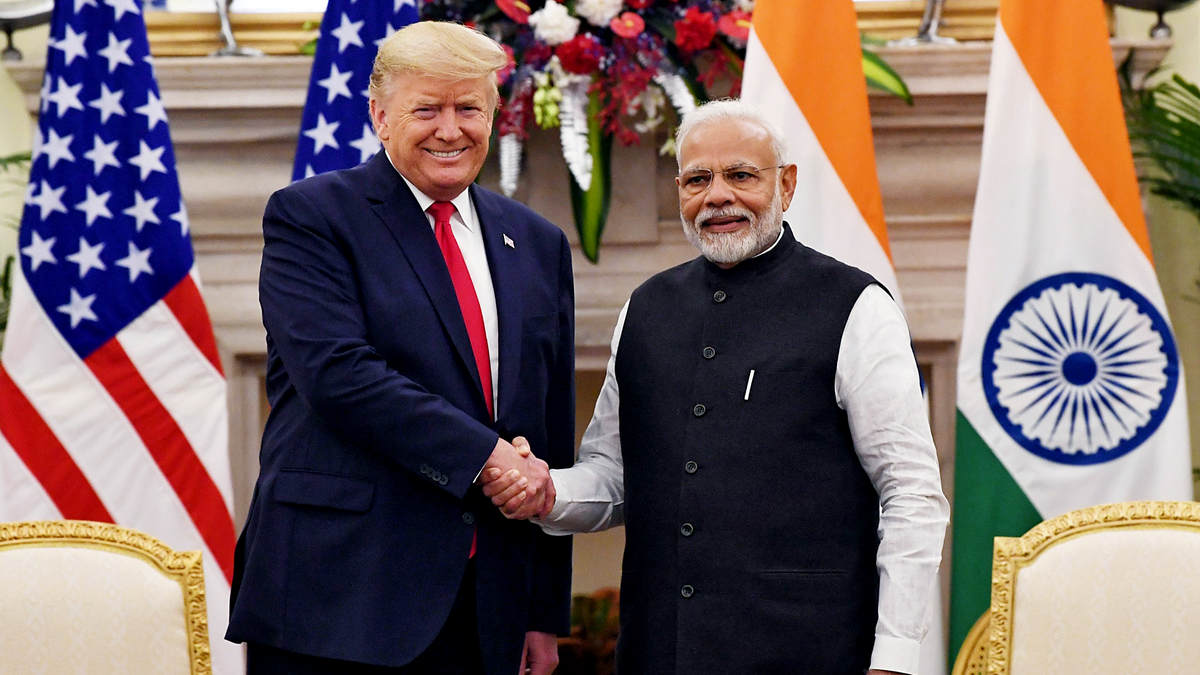
New Delhi. India said it is now “nearer” to a smaller trade deal than ever before with US since that country believes a free trade agreement (FTA) is possible even as India has walked out of the Regional Comprehensive Economic Partnership (RCEP).
The two nations have been discussing a limited trade deal since September last when Prime Minister Narendra Modi visited the US but both sides could not agree to a deal, owing to several differences over tariffs on a range of goods that are being traded by both sides.
“This is a certainly win-win proposition for both of us and our leadership had given direction to both sides to quickly wrap up a smaller deal and then go in for a bigger FTA. A lot of ground has been covered and perhaps we are nearer to the smaller deal than ever before… A larger perspective and a broader vision has to be put in here,” said Taranjit Singh Sandhu, Indian Ambassador to the US at the India Global Week.
Sandhu was addressing a virtual session on ‘Partners in Revival: Time for Action’ moderated by Mukesh Aghi, president and CEO, US-India Strategic Partnership Forum.
“There are lots of areas, it is not just that only India has to send out a message of symbolism, I think this is a case of US too. This is a time to send out that message of balancing, of a win-win situation. Therefore, I hope both trade sides are able to finalise the smaller deal soon,” he added.
India has been pushing the US to restore the trade benefits under its Generalised System of Preferences (GSP), which was suspended in June last year.
“Trade and investment cooperation without doubt is an important dimension in our comprehensive global strategic partnership. Our bilateral trade has been growing at more than 10 per cent on a year-to-year basis… While growth is impressive, there’s no doubt that real potential is yet to be reached. There is opportunity in every crisis, including this one. This is time to reflect together on the global supply chains and how they can be refashioned and made more robust to withstand such crisis in the future,” Sandhu added.
Energy and defence trade will continue to be an important aspects in the two-way trade, Sandhu said, adding that the US and India will soon have the next round of energy talks.
Kenneth Juster, US ambassador to India, who was also addressing the session, said that while discussions between both the governments are on towards restoring the GSP, it is important that India also “open” for trade and manufacturing.
“India has made a clear decision not to participate in the regional agreement (RCEP) with the Chinese and other countries in Asia… In my view, the way to lock in some of the economic potential going forward is to a free trade agreement,” said Juster.
Trade has a huge potential opportunity for both countries across services, especially in a post-Covid era, Juster said.
“I do worry at times that we don’t have big enough vision for a trade relationship… We would love to do a bilateral free trade agreement. We still get hung up even on this small interim agreement. We need to have reciprocity, but I think coming out of Covid-19, where economic growth is needed, having a trade agreement will really add impetus to the possibility of growth,” he stressed.
On Modi’s clarion call for ‘Atmanirbhar Bharat’, US envoy Juster said: “I hope this means building a more resilient and stronger local economies that can participate more ably in the global economy.”








